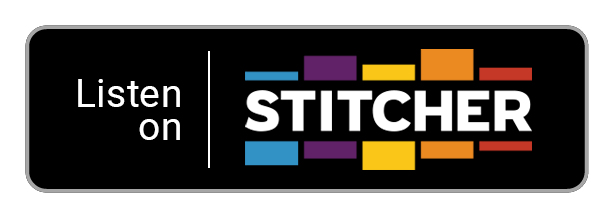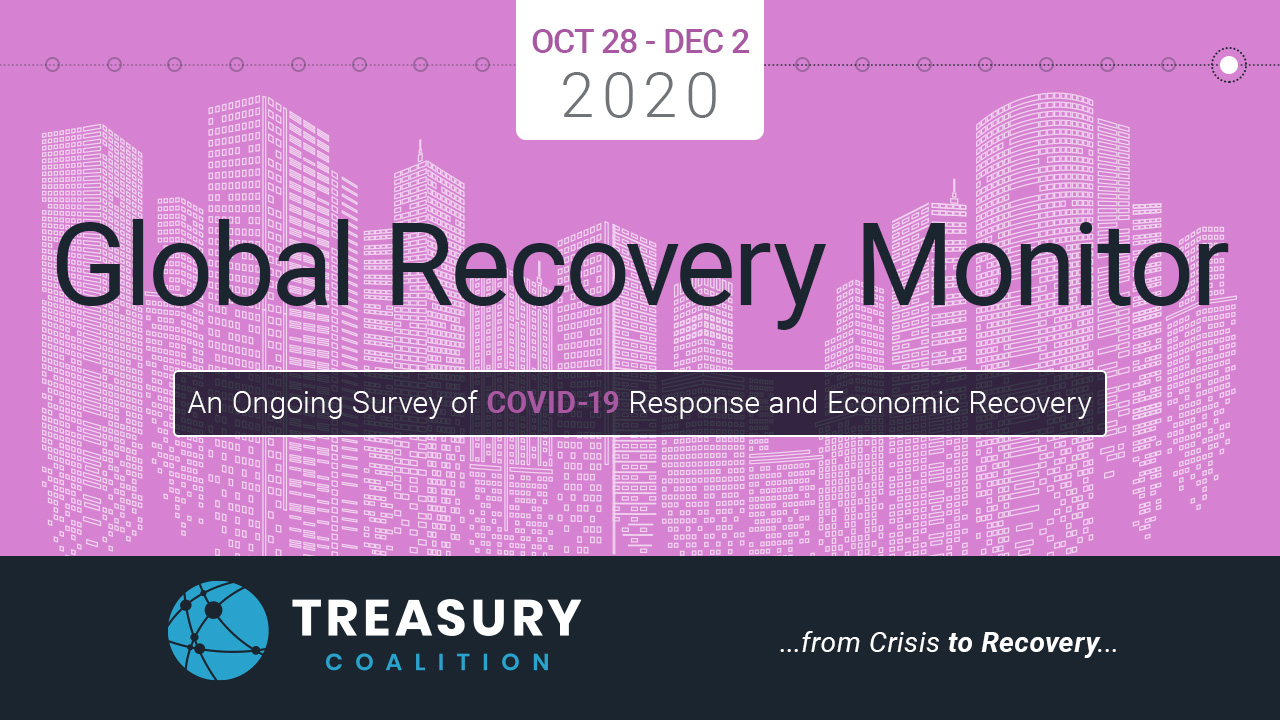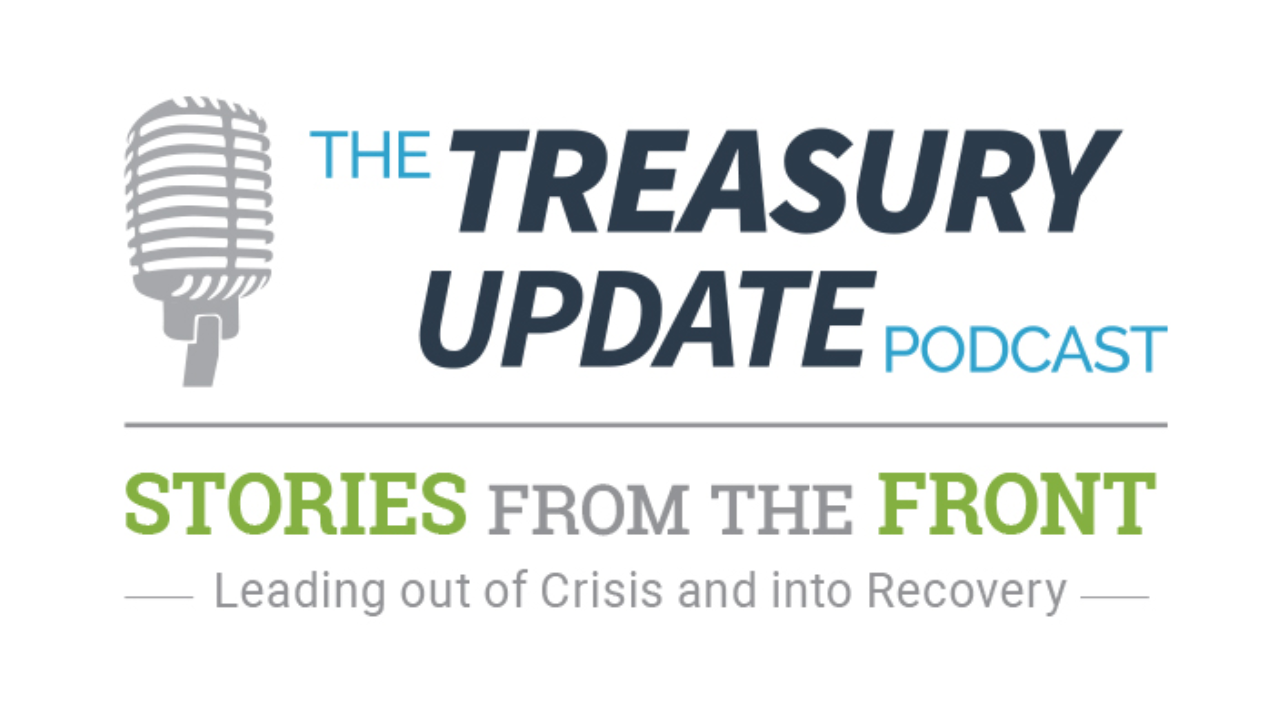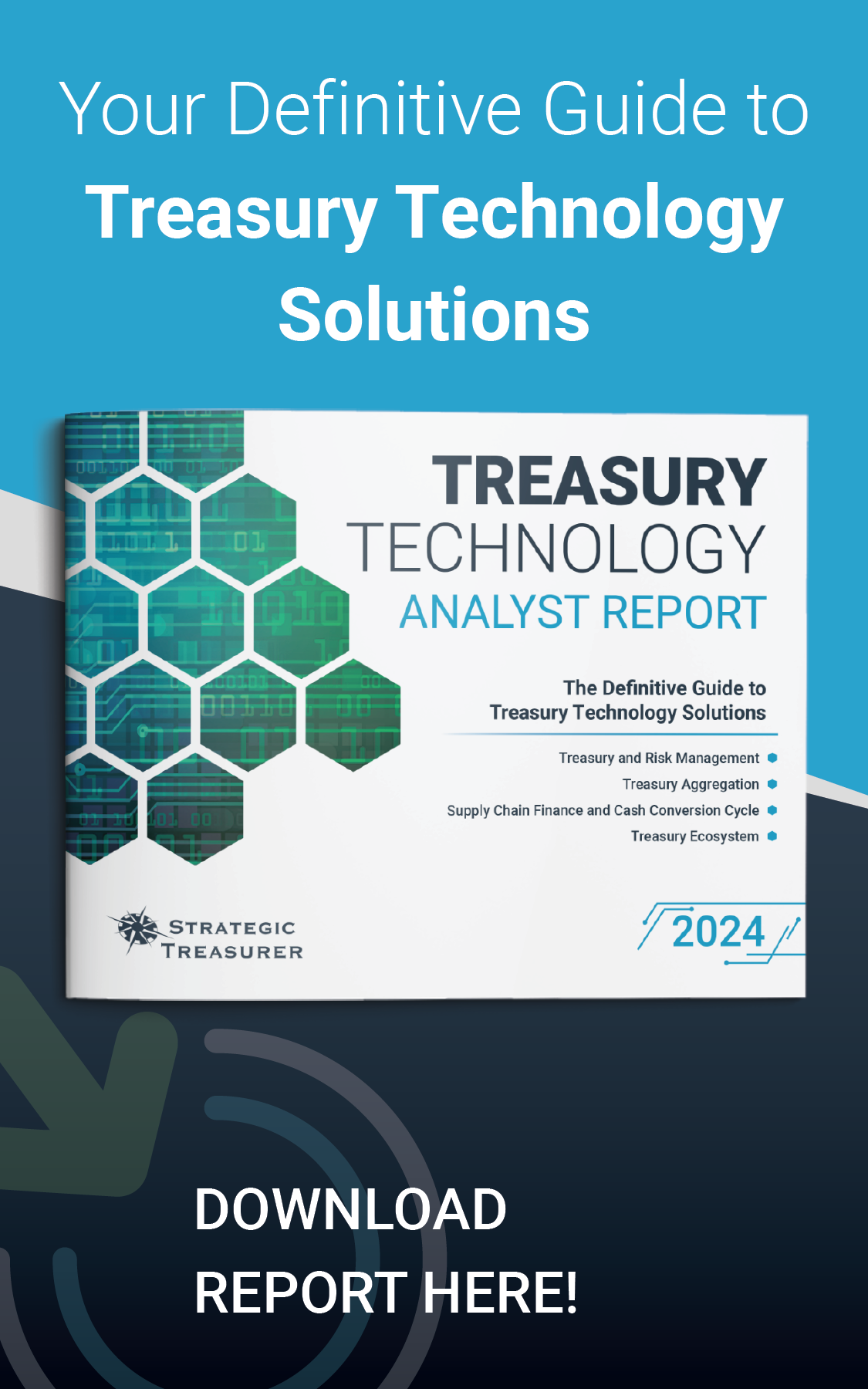
Episode 124
Stories from the Front:
Implications of Federal Reserve Actions for Investing and Borrowing
On this episode of the Stories from the Front series, Host Craig Jeffery meets with Joe Dodi, Vice President and Treasurer at Health Partners Plans, to discuss the implications of the Federal Reserve’s actions for investing and borrowing amid the COVID-19 pandemic. Topics of discussion center around operational and financial changes with a focus on short-term investments, market shifts and bank agreements. Listen in to this insightful conversation to find out more.
Host:
Craig Jeffery, Strategic Treasurer


Speaker:
Joe Dodi, Health Partners Plans
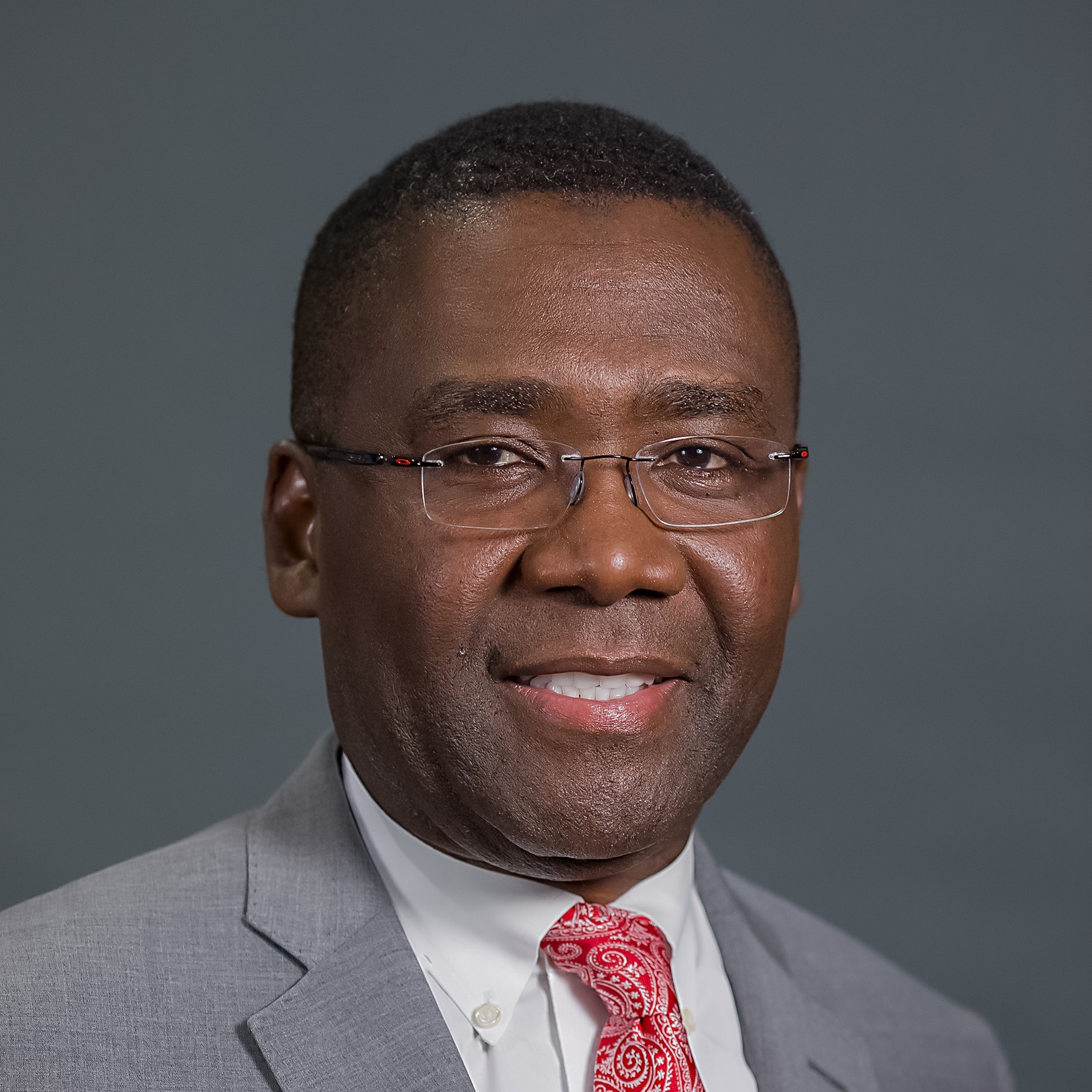

Subscribe to the Treasury Update Podcast on your favorite app!
Episode Transcription - Episode 124 - Stories From the Front: Implications of Federal Reserve Actions for Investing and Borrowing
Craig Jeffery:
Welcome to the Treasury Update Podcast. This is Craig Jeffery. Today’s episode is implications of Fed actions on investing and borrowing, and this is part of our Stories From the Front series. I’m here with a longtime friend, Joe Dodi. He’s VP and Treasurer at Health Partners Plans. Welcome to the podcast, Joe.
Joe Dodi:
Thank you so much for the invitation, and Craig yeah, 17 years you and I have known each other. I certainly couldn’t say no to you today, so it’s a pleasure for me to be here, truly.
Craig Jeffery:
You’re a busy and active man, and I appreciate you sharing some time with me, and then also with a broader audience. Before we get into the Stories From the Front, where we look at this concept of leading, through crisis into recovery, and just some of your experiences there. I was wondering if you could give us an overview of Health Partners Plans, and I’ll say HPP, if that’s okay, just so that people know what your company is, and have some background in it.
Joe Dodi:
Yeah, so Health Partners Plans, or HPP as we’re known, is a Medicaid and Medicare health insurer. We are the largest Medicaid provider, and we have a Medicare business as well. We are basically Philadelphia, so southeast. We are known in the City of Philadelphia, we cover a lot of Black and Brown people, who need our services, and we actually, recently have an opportunity to hopefully, potentially expand in Pennsylvania, so we’ll see. We’ll see, and have some ambitions to also do business in Jersey and Delaware as well, but we have about 800 employees also.
Craig Jeffery:
800 employees, and how many people are you covering through your plans?
Joe Dodi:
Good question, about 245,000 people. That is a very good question, Craig. That was a big surprise, but I’m glad I have it in my head.
Craig Jeffery:
I sent you a rough outline of what I might ask you. I didn’t say I was going to cover everything.
Joe Dodi:
Yeah, you didn’t put that one on that list.
Craig Jeffery:
Excellent, so just in terms of your career overview and your current role, I’ve known you through several different positions in 17 years. I would have guessed it was maybe 19 years, but that sounds about right.
Joe Dodi:
Yeah, that’s about right.
Craig Jeffery:
You said it so firmly, I’m like, “It’s got to be there and he’s got me tracked on that,” but yeah, maybe talk to us about, quick view of your career, and then some of your current roles.
Joe Dodi:
Sure, so the quick view, I have been in five different industries, of all things. I started out as a treasury analyst. Before the treasury analyst position, I was a fund accountant at Putnam Investments. I got the bug in investments. There I learned all about bonds, etc. there, which I later on had to use in my current job, believe it or not, pricing mutual funds and pricing bonding instruments, you have to understand what’s going on in a couple of markets.
Joe Dodi:
From Putnam, went to a publisher, Houghton Mifflin, which is still around. I started there as a treasury analyst, and then from there I basically, that is where I learned treasury. I finished there as the Assistant Treasurer. I helped build the Treasury Department from a department of basically the Treasurer and myself. At that point, he wasn’t even the Treasurer. He was the Treasury Manager, and then we got bought out in 2002.
Joe Dodi:
Moved my family to New Jersey. My kids were about six, and almost two at that point. Into aerospace defense, of all … To a chemical company first, and then aerospace defense, and finally, the last few years I’ve been a health insurer. Health insurance that I started at the Horizon Blue Cross, and now at Health Partners Plans, so that’s …
Joe Dodi:
The treasury is treasury, is treasury. It’s the same, you have to understand the industry, but it’s through the same pulls and pushes that happens.
Craig Jeffery:
Different volumes and some complexities, but the core is the same, very interesting. Yeah, we see so many careers covering different companies, and thanks for that background. What’s your current role at HPP? I know you’ve … I know on LinkedIn you just took on some more board responsibilities, so maybe just give us a view of your current role.
Joe Dodi:
Sure, so my role, I’m still the Vice President and Treasurer for HPP, which comes with oversight of investments, insurance, and treasury operations, and recently I was given the opportunity to be the Chair of the Foundation for HPP, so it was a total honor. I was the Treasurer for the Foundation, and typically the Chair of the Foundation is a direct report to the CEO. This was a big deal for me, to get this opportunity. I’ve been on the Foundation three years, two years or so. We give in the community. We give scholarships. It’s really … I’m passionate about it, and I think they felt, because of that, they wanted to give me the opportunity to lead the Foundation as the Chair.
Joe Dodi:
I do have an Executive Vice President, and President of the Foundation. Executive Director, I should say, and President of the Foundation, who does most of the heavy lifting. She’s actually in the community more than I am.
Craig Jeffery:
Excellent. Well congratulations on that too. I know you’re, like you said, you are actually passionate about those items, versus some people use the term passionate for everything, but you are passionate and enthusiastic, and that’s excellent.
Craig Jeffery:
Now just shifting some of that, from the career and about HPP, over to this idea of coming through recovery and maybe we should start back with COVID-19, the shutdown, when everyone moved to working remotely, work from home. What happened to you and your team, in the beginning, when everyone went home?
Joe Dodi:
Initially, the thinking … Well let me say, our leadership made some really quick decisions. Initially I was thinking, “We’re only going home for a couple of weeks,” but …
Craig Jeffery:
We all did.
Joe Dodi:
We all did, I know.
Craig Jeffery:
I’m home two weeks, we’ll beat it, and then we’ll all …
Joe Dodi:
Yeah, so we, the shutdown, we were home before the shutdown actually happened, so we moved faster. The good news is, the organization has some really strong business continuity in place, so in terms of the Treasurer and finance team, it was, we opened up the business continuity plan. We had implemented a process to make payments for accounts payable, without being in the office. We, as a team, had just completed that a few months before, so it worked out perfectly when we went, when we all had to be in the shutdown, so we’ve been moving relatively well.
Joe Dodi:
The claims, payments that we have to make as an insurance company, we basically, as you know we collect money and we pay basically .88 cents on a dollar. We have to, everything goes out. The claim side, we already had a partner that did something similar like that for us, and then the AP side, we did it, like I said, a few months back, so everything was fine. Money was moving. People were getting paid. Invoices were being set into an email address, were very, very functional.
Joe Dodi:
In terms of operations, the big issue was what was happening with the federal funds rate, and the impact to our short term investments and such.
Craig Jeffery:
Yeah, so maybe you could shift into that. I love the example of the AP, the operational stuff, that’s perfect timing for doing that.
Joe Dodi:
We got lucky.
Craig Jeffery:
I’ve had a number of conversations where people are like, “We’ve been pushing for three years, and now we’ve … Then we got the buy in because nobody can go to the office,” so you beat that perfectly. Yeah, this concept on the financial changes, the Fed in particular. There was a number of actions they took, and there was actions in the market that perhaps precipitated concerns, impact on investments, and then some of their actions. Maybe you could talk about what you saw going on with short term investments. What changed?
Joe Dodi:
Yeah, so let me say as an insurance company, we have, we are really cash rich. We get significant payments from the state, so we have quite a bit of cash, and the short term investment program produces a decent amount of returns for us.
Joe Dodi:
Then March came, and everything just went the other way, literally. The prime funds are dropping. Government … it’s all money market funds, mainly is what we invest in, so prime funds, government funds and treasury funds. Specifically, we saw the yields drop about 150 basis points, just like that.
Joe Dodi:
One thing that we try to do is maximize our return. We were not afraid of investing in prime. We were not, so we focused on maximizing our prime position. What I mean by maximizing our prime position is, we have requirements from Pennsylvania Investment Rules, statute of limitations on how much we can invest in any one particular asset, so it can’t be more than 5% of your net admitted assets, so in any one fund. We’re using multiple money market funds, prime funds, maxing out on our limitation, or a little bit below it, and then the treasuries and the govies, and also bank deposits.
Joe Dodi:
There’s a fund now that I won’t mention the name, but it did really, really well for us.
Craig Jeffery:
Let me just ask you a question on a comment you made. You said you weren’t afraid of prime funds, and there was quite a few people who got concerned when there was, some of the markets were freezing up a bit. If you have enough cash, and you can wait, there’s no concern, but a lot of people moved out of prime to government funds or treasuries, or they moved to the most liquid form they could during the depths of that trough. What made you not so concerned about that?
Joe Dodi:
All right, so let me rephrase why we weren’t afraid of prime funds. What we did was we didn’t run out of them right away.
Craig Jeffery:
Ah, okay.
Joe Dodi:
We basically kept our position, and I spent a lot of my time on webinars, listening, reading everything. Compared to 2008, because I’ve been in this business a long time, 20 plus years, as you know Craig. I was around for 2008. 2008, I ran out. I booked right out. 2020, it’s more like, “All right, hold your position, see what’s going on,” and in about, I would say I was fully back in … Again, I didn’t draw out. I didn’t get out. I just stayed where I was, and then I added. Hopefully I clarified, I just don’t want people to think that we were not being prudent.
Joe Dodi:
At the end, we’re still, I mean I’m still where I am, after I get back in prime, today. Again, I’m not afraid of prime funds. Once I realized that Fed action, the liquidity of the Fed was providing was the reason why I stayed.
Craig Jeffery:
Yeah. That was the purpose of their action, right? Almost unlimited support for those, okay. Yeah, that makes sense. That’s some of your activity, what else occurred on the investment side? You’ve moved back. Things recovered from that really quick descent and recovery, the support from the Fed, anything else that you learned from that time frame?
Joe Dodi:
I think that learning is holding, I won’t say instincts, but rather doing bottoms up reading and understanding how the markets are happening, and not getting emotional. Sticking with investment policy, because investment policy allowed us to be able to do what we did. Now you move forward to right now, and we’re talking single digit treasuries, I mean five basis points, to the point where, and that would be one thing where I would recommend people to think about is look at your earnings credit, because I have put everything on the table. I’m leaving more balances in our bank accounts. Depending on who your bank is, so I’m basically maximizing all our cash positions using short term, govies, treasuries, prime, and there is credit, just trying to make sure we’re making the right decisions on all four fronts.
Joe Dodi:
It’s only going to get worse, right? We’re going on a zero fall in money market funds. Oh Lord.
Craig Jeffery:
Awesome. Yeah, so that was, being a big investor, HPP had to navigate through those items, and a calm hand at the helm helped you guys get through that. I know when we spoke the other day, you talked about different types of bank agreements. There’s the investment side, but there’s also the access to liquidity, not through the … Through the debt market, so maybe you could talk about what’s been going on. I know you’re renewing or you just renewed your credit facility.
Joe Dodi:
Yes, we’re renewing as of tomorrow, so we’ve come to an agreement on the terms. Before I get there, I was going into this bank deal, so it comes due the 30th of every September. I was going into this bank deal, going, “Well the Fed is down at zero bound,” right, you know Craig? This zero balance, so I should be getting a really good deal now. It should reflect my price, that’s what I was thinking. Well, it was a very different conversation, and later on I began to understand why the bank priced things the way they price.
Joe Dodi:
The structure went from … The spreads were the same. The structure, in terms of unused lines, was about three times what it was last year, and then there’s an element of cash deposit on top of it. Right away, I’m having a conversation with the bank saying, “Why?” Well they tell me they’re afraid of zero rates. They were negative rates, no zero, negative rates. This is my banker, by credit banker telling me what they think is going to be negative rates, potentially, and then the reality is that banks are not making any money, because the U curve is so horrible, and unless you’re JP Morgan, who has, even they should be having some problems, you’ve got other trading business then maybe you can make some money there, but they don’t even need the money.
Joe Dodi:
People have given them deposits that they can’t turn around and make money on, so at the end, this is the really first time of seeing such a banking structure of all the years I’ve been doing this. I’ve been in investment grade, to non-investment grade, to low level investment grade. I’ve been in all different industries, and ratings, but the deal is actually a secure deal on top of it.
Joe Dodi:
Anyways, at the end I believe we got the best deal, because I also want to get some inside … from my network and such. We did get a good deal at the end. It’s a one year deal, so we’ll see what happens next year.
Craig Jeffery:
We just completed a really large research, a survey with a major, major bank, and one of the things that was interesting, and I’d love for you to comment on this, is that there was some cross currents for, I don’t want to call it, well what do I want to call it, it was … There seemed to be, particularly in the U.S., an expectation of both corporate treasurers, as well as bankers that there was more money available for credit, that it would be leaning more towards the borrower than the lender for availability, but there would be higher covenants and restrictions. It would be much more closely watched.
Craig Jeffery:
I think your, maybe you could comment on that. Is that an exact picture of what you say, or how would you analyze it?
Joe Dodi:
Yeah, so because mine was not a covenant based loan, a base loan, every quarter I just have to submit a letter saying that everything is good, and then send my financials. I don’t have any covenants. It was straightforward. It was more around making sure that the bank has the assets to deliver. I did reduce my sizing. I did reduce the size of my loan, because we’re thinking about some other creative things that I can’t share here, but I feel bad for those companies who have to go through covenants, I do.
Joe Dodi:
Depending on your industry, you know what’s going out there. It’s bad out there, and I’ll tell you, in my industry, in the insurance industry, it’s a good … Things are good. What’s happened is elective surgeries are down, so we actually are struggling to meet. We’re trying hard to spend than not, because people are not going to the hospitals that much. Again, like I said, we have to spend .80 cents on our dollar, so we actually dissolve, we’re doing some really innovative things to get money into the community, to meet that threshold, for banks, etc. We’re doing some really good things.
Joe Dodi:
Now, if we wait till the end, the government will tell us what to do with that money, by the criteria in Medicare and Medicaid, on who you can give the money to in order to meet your threshold. Does it make sense?
Craig Jeffery:
Yeah.
Joe Dodi:
Think about those other companies who are not in my shoes, and the covenants. I can’t imagine the structure they have to deal with. I’ve got it good, Craig, really good. Hopefully that answers your question, but I … I remember one time, when I was in the chemicals, one year I was in a bank deal, a horrible, non-investment grade company. I was doing a bank deal, and I had to give up gold that we used as a catalyst, to produce a product. This is gold in a drum. I had to use that as security. That was one of the hardest bank deals I had to go through. I would hate to be in the chemical industry right now, I’ll tell you that much, what they’re doing.
Craig Jeffery:
That’s good. Well, and I liked how you answered that and explaining the situation, and it seems like it’s tracking. Usually, when there’s a shift, like it’s moving towards … The last couple of years have moved towards the lenders, things have been tightening, after a long run of continually moving towards the position of the borrowers, like less covenants, better cash. Everyone’s like, “No, we want to hold this to you.” Well, I’ve got other people lined up to pay, so it was getting easier. The last two years it shifted, and this shift back to the borrower side is limited.
Craig Jeffery:
There’s plenty of capital it seems to go there, but like you were talking about concerns about costs of unused lines, committed lines, uncommitted lines, what are people doing with those things, and whether you have covenants or just the different terms, the term sheets that come out have more requirements than they did before, so there’s plenty of cash. For many industries it’s better. For the majority of industries it’s better from that side, but the restrictions are heavy amped up too, so it’s not this everything moved to one side or the other. That’s interesting, because we haven’t really seen that, even back pre 2008, it’s like everything moved to one direction or the other, and now it’s like, “Okay, there was a split. Plenty of cash, but tight on the …”
Joe Dodi:
Yeah, it’s a liquidity problem. Like I said, plenty of cash in the system, but they don’t want defaults.
Craig Jeffery:
Yeah.
Joe Dodi:
Who wants defaults? Nobody wants defaults.
Craig Jeffery:
Even more than normal, and they’re concerned, so that’s very good. Joe, thank you for sharing all this. I did want to, as you’ve thought about this move to work from home, and hopefully return to normalcy at some point, and then your future and everything that’s going on. What are some thoughts as we look at this series of Stories From the Front? What did you learn, or what would you want other people to make sure they knew as a summary?
Joe Dodi:
Yeah, that’s a good question. The learning, for me, and I’ll get personal with this one. I had to get used to working from home, Craig. I’m starting out in my wife’s kitchen. She let me in there for three weeks, and then she’s like, “You’ve got to go down to the office basement.” She kicked me out, but she had an office in the fourth bedroom, so she was fine, but I that I was temporary. I thought this whole thing was temporary.
Joe Dodi:
At the end, I found a way to do that work from home. In terms of the main operations, we were very comfortable as a company, so there were no issues. Our payments were happening. I had to personally figure out how to work from home, and be online, and logged on all the time. I figured that out.
Joe Dodi:
Looking ahead, when we’re still work from home, was go back September. I see you pushed it to January, that it’s going to be maybe 40 to 50 people. My expectation is this is the new normal. I actually now work at of Philadelphia, so it’s a decent commute for me, from where I live. I can see me in the office much less in the future. I think that’s how it’s going to be, because we all are productive. We are all productive, and so the office space will most likely shrink, most likely, and I think that’s going to be the new normal for a lot of companies. Interesting times, no one saw this. No one saw this coming. Interesting times.
Craig Jeffery:
Joe, thank you so much for sharing your stories from the front.
OUTRO:
You’ve reached the end of another episode of The Treasury Update Podcast. Be sure to follow Strategic Treasurer on LinkedIn. Just search for Strategic Treasurer. This podcast is provided for informational purposes only and statements made by Strategic Treasurer, LLC on this podcast are not intended as legal, business, consulting or tax advice. For more information, visit and bookmark strategictreasurer.com.
Related Resources
This survey provides rapid exploration and response reporting on major factors impacting treasury and finance organizations. This effort is supported by the Treasury Coalition which consists of leading solution providers leveraging their networks to ensure comprehensive results for the good of the profession. Complete for early access to the results!




